
-
 Traore backs 'hungry' Italy against France in Six Nations
Traore backs 'hungry' Italy against France in Six Nations
-
All-rounder Curran brings stuttering England to life at the death

-
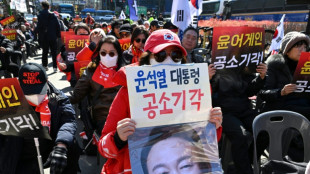 South Korea court weighs death sentence for ex-president Yoon
South Korea court weighs death sentence for ex-president Yoon
-
Tech chiefs address India AI summit as Gates cancels

-
 Australia rejects foreign threats after claim of China interference
Australia rejects foreign threats after claim of China interference
-
Somali militias terrorise locals after driving out Al-Qaeda

-
 Peru picks Balcazar as interim president, eighth leader in a decade
Peru picks Balcazar as interim president, eighth leader in a decade
-
Australian defence firm helps Ukraine zap Russian drones

-
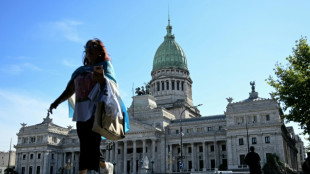 General strike to protest Milei's labor reforms starts in Argentina
General strike to protest Milei's labor reforms starts in Argentina
-
Cuban opposition figure Ferrer supports Maduro-like US operation for Cuba
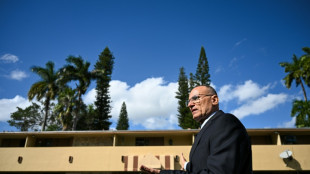
-
 High-stakes showdown in Nepal's post-uprising polls
High-stakes showdown in Nepal's post-uprising polls
-
Asian markets rally after Wall St tech-led gains

-
 After Greenland, Arctic island Svalbard wary of great powers
After Greenland, Arctic island Svalbard wary of great powers
-
Veteran Slipper set for new Super Rugby landmark

-
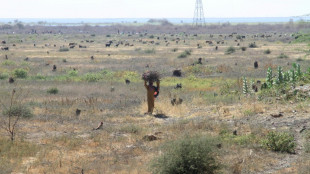 Sudan's historic acacia forest devastated as war fuels logging
Sudan's historic acacia forest devastated as war fuels logging
-
Deadly Indonesia floods force a deforestation reckoning

-
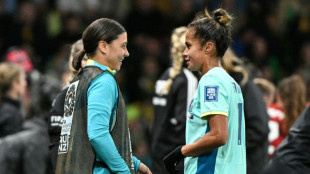 Australia vow to entertain in bid for Women's Asian Cup glory
Australia vow to entertain in bid for Women's Asian Cup glory
-
Afghan barbers under pressure as morality police take on short beards

-
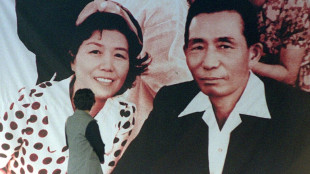 Jail, disgrace and death: the dark fates of South Korean leaders
Jail, disgrace and death: the dark fates of South Korean leaders
-
S. Korea court weighs death sentence for ex-president Yoon
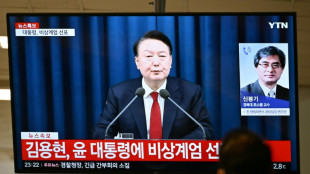
-
 MotoGP dumps Phillip Island for Adelaide street circuit
MotoGP dumps Phillip Island for Adelaide street circuit
-
Trump kicks off his 'Board of Peace,' with eye on Gaza and beyond

-
 Walmart results expected to highlight big plans for AI
Walmart results expected to highlight big plans for AI
-
Australia Olympic TV reporter apologises after slurring words

-
 USA and Canada on course to meet for Olympic men's ice hockey gold
USA and Canada on course to meet for Olympic men's ice hockey gold
-
Bodo/Glimt stun Inter, Gordon hits four in Newcastle Champions League romp

-
 Arteta urges Arsenal to 'stand up' after title bid rocked by Wolves draw
Arteta urges Arsenal to 'stand up' after title bid rocked by Wolves draw
-
McIlroy aims to eliminate 'big numbers' in pursuit of first Riviera title

-
 PM Modi, top tech bosses to address India AI summit
PM Modi, top tech bosses to address India AI summit
-
Bad Bunny to star in movie about Puerto Rico

-
 Arsenal blow two-goal lead in damaging Wolves draw
Arsenal blow two-goal lead in damaging Wolves draw
-
Habib Beye appointed coach of Marseille

-
 Sloppy Atletico held in six-goal Brugge thriller
Sloppy Atletico held in six-goal Brugge thriller
-
Schick steers Leverkusen past Olympiacos in Champions League

-
 Hogh stars as Bodo/Glimt down Inter in Champions League
Hogh stars as Bodo/Glimt down Inter in Champions League
-
Oil prices jump on toughening US posture on Iran as US stocks advance

-
 Gu's exchange with AFP at Winter Olympics goes viral
Gu's exchange with AFP at Winter Olympics goes viral
-
Hamilton feeling 'connected' to new Ferrari car at test sessions

-
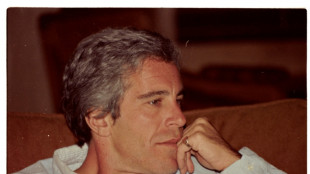 US lingerie magnate says was 'conned' by Epstein
US lingerie magnate says was 'conned' by Epstein
-
Marner fires Canada into Olympic ice hockey semis, as Finland survive

-
 Israel conducting 'gradual de facto annexation' of W.Bank: UN official
Israel conducting 'gradual de facto annexation' of W.Bank: UN official
-
Alcaraz, Sinner cruise into Qatar Open quarter-finals

-
 Mavs confirm Irving will miss rest of NBA season
Mavs confirm Irving will miss rest of NBA season
-
Environmental groups sue Trump administration over scrapped climate rule

-
 Major US naval, air buildup sets stage for potential Iran war
Major US naval, air buildup sets stage for potential Iran war
-
White House tells Iran to do deal as Trump hints at US strikes

-
 Gordon scores four as Newcastle hit Qarabag for six
Gordon scores four as Newcastle hit Qarabag for six
-
French far-right leader accuses Macron, allies of strengthening hard-left after activist killed

-
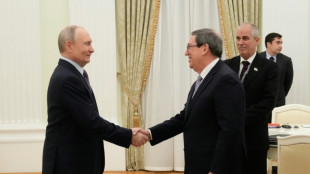 Putin says Russia 'always' stands by Cuba, slams US sanctions
Putin says Russia 'always' stands by Cuba, slams US sanctions
-
England's Joe Heyes says Princess Anne mistook him for Joe Marler


'Palestine 36' shines light on Arab revolt against British rule
In "Palestine 36," director Annemarie Jacir recounts a year of Arab revolt against British colonial rule that she says is crucial to understanding current events in the Middle East.
"You can't understand where we are today without understanding 1936," Jacir told AFP a day after the film's world premiere at the Toronto International Film Festival.
The Palestinian filmmaker, who lives in the Israeli city of Haifa, was motivated to make the film, in part, to redress a lack of awareness about the consequences of British policies during the so-called mandate period, before Israel's creation in 1948.
"I wanted to really point the finger at the British," she said.
The film features a mostly Arabic-speaking cast, including Hiam Abbass from HBO's "Succession," and Jeremy Irons as a British high commissioner unsettled by rising violence and protests against the colonial administration.
With Jewish immigration from Europe increasing and Palestinian villagers concerned about further loss of land, Arab support for armed revolt against the British surges.
The film details the brutal crackdown launched to contain the violence.
Villagers are beaten, people are arrested en masse while soldiers torch homes after searching them for weapons.
They are tactics Jacir said Israel's army learned from the British and have used since against Palestinians living under occupation.
But Jacir -- who was born in Bethlehem in the Israeli-occupied West Bank -- told AFP a key goal of the film was to shine a spotlight on the British colonial practice of divide and rule, which was used across the empire.
The narrative in "Palestine 36" builds toward the publication of the Peel Commission's report, a British inquiry into the causes of Arab and Jewish unrest in Palestine.
The commission recommended Palestine be partitioned -- with separate areas for Jews and Arabs -- a finding that influenced the United Nations-backed partition plan that coincided with Israel's creation.
"It was a British policy: first, we'll bring (Arabs and Jews) together," Jacir said.
Then "we separate... It was a tactic of control," she added.
Jacir said the reception for the film at Friday's world premiere was overwhelming.
"Yesterday was crazy," she told AFP, an outpouring of support likely tied to widespread outrage over the conflict in Gaza.
She voiced hope that the film could foster broader awareness about the lasting impacts of the British mandate period in Palestine.
"I'm shocked how many people have told me when I tell them about the film, they were like, 'the British were in Palestine?'"
British rule, she said, was "decisive."
D.Kaufman--AMWN
